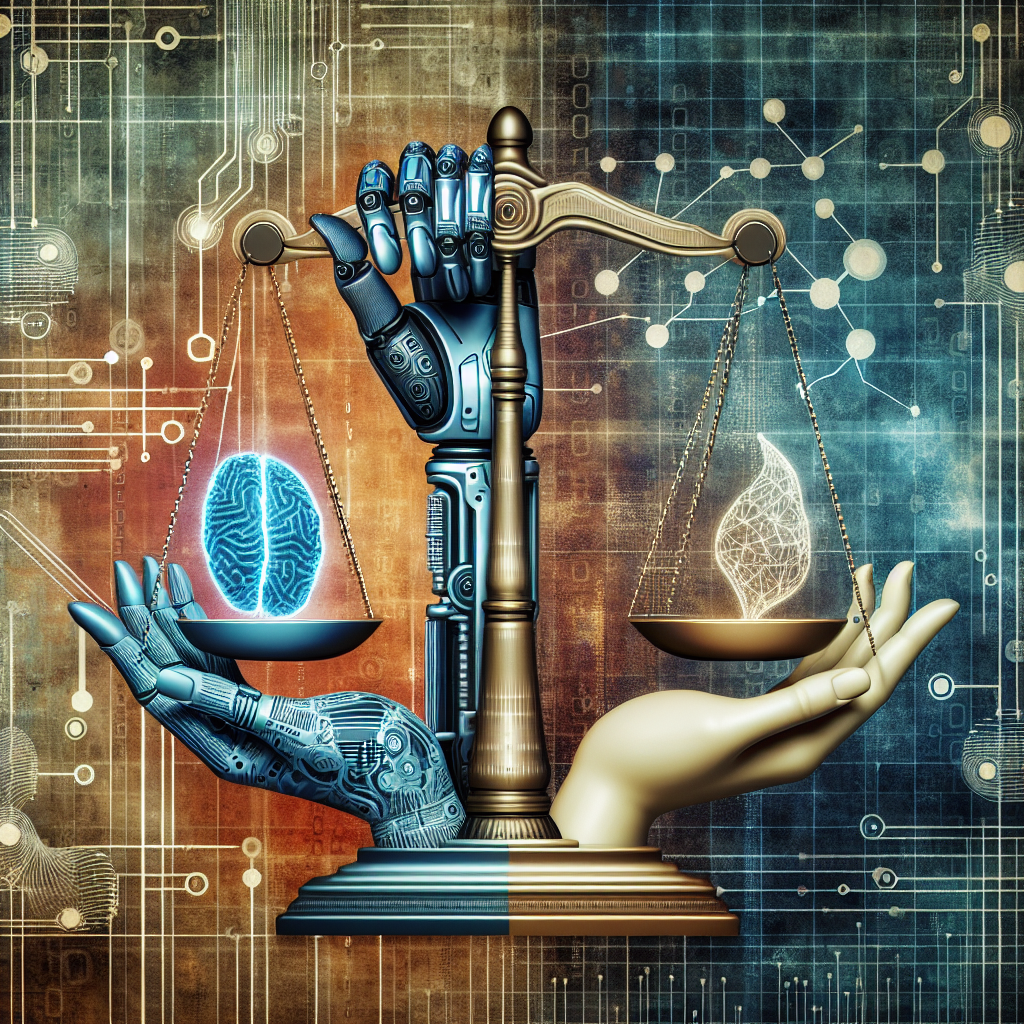
The Ethical Dilemma of AI: Balancing Innovation with Responsibility
Artificial Intelligence (AI) has become an integral part of our lives, from virtual assistants like Siri to self-driving cars and personalized recommendations on streaming platforms. While AI offers incredible opportunities for innovation and advancement, it also presents a unique set of ethical challenges. In this article, we will explore the ethical dilemma of AI and the importance of balancing innovation with responsibility.
The Rise of AI
AI has rapidly evolved in recent years, with machine learning algorithms becoming increasingly sophisticated and capable of performing complex tasks. This has led to significant advancements in various fields, including healthcare, finance, and transportation. AI has the potential to revolutionize industries and improve efficiency, productivity, and decision-making.
Ethical Considerations
As AI systems become more prevalent and powerful, questions about ethics and responsibility arise. One of the key concerns is the potential for AI to perpetuate bias and discrimination. For example, if AI algorithms are trained on biased data, they may make decisions that reflect and even amplify existing societal biases.
Case Study: Hiring Algorithms
Several studies have shown that AI-powered hiring algorithms can unintentionally discriminate against certain groups based on gender, race, or other factors. For instance, if historical hiring data is biased towards a specific demographic, the AI system may learn to favor candidates from that group, perpetuating inequality in the hiring process.
Transparency and Accountability
Another crucial aspect of the ethical dilemma of AI is transparency and accountability. AI systems can be complex and opaque, making it difficult to understand how they arrive at their decisions. This lack of transparency raises concerns about accountability and the potential for AI to make errors or harmful decisions without oversight.
Example: Autonomous Vehicles
Autonomous vehicles rely on AI to make split-second decisions on the road. In the event of an accident, who is responsible for the decision made by the AI system? Should the manufacturer, the programmer, or the AI system itself be held accountable? These questions highlight the need for clear guidelines and regulations around AI ethics.
Privacy and Data Protection
AI systems often rely on vast amounts of data to function effectively. This raises concerns about privacy and data protection, especially when sensitive information is involved. How can we ensure that AI systems respect user privacy and handle data responsibly?
Privacy Concerns in Social Media
Social media platforms use AI to analyze user behavior and preferences for targeted advertising. However, this raises concerns about privacy and data misuse. Users may feel uncomfortable knowing that their personal data is being used to manipulate their online experience without their consent.
Frequently Asked Questions
What are some ethical challenges associated with AI?
Some ethical challenges include bias and discrimination, lack of transparency, accountability, privacy concerns, and misuse of data.
How can we address the ethical dilemma of AI?
We can address the ethical dilemma of AI by implementing clear guidelines and regulations, promoting transparency and accountability, and prioritizing ethical considerations in the development and deployment of AI systems.
Conclusion
The ethical dilemma of AI presents a complex and multifaceted challenge that requires careful consideration and deliberation. Balancing innovation with responsibility is essential to ensure that AI technologies benefit society while upholding ethical standards. By addressing issues such as bias, transparency, accountability, privacy, and data protection, we can navigate the ethical complexities of AI and harness its full potential for positive impact.






